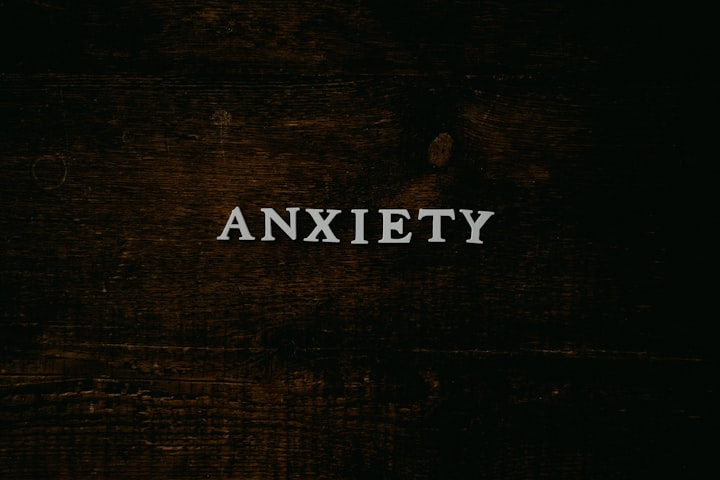The Science of Sleep: Unlocking the Secrets of a Good Night's Rest
Science of Sleep

Introduction
Sleep is essential for maintaining good physical and mental health. It is a natural process that allows the body to rest and recover from the day's activities. Despite its importance, many people struggle with getting enough quality sleep. In this article, we will explore the science of sleep and the factors that affect sleep quality. We will also provide tips for better sleep and discuss emerging research in sleep science. By unlocking the secrets of a good night's rest, we can all benefit from improved health and well-being.
The Sleep Cycle
The sleep cycle is a natural process that occurs during the course of a night's sleep. It is a complex process that involves the brain and the body. The sleep cycle is divided into four stages, each with its own unique characteristics.
Stage 1: This is the stage of light sleep. During this stage, the body is still somewhat awake, and the brain produces alpha and theta waves. It is easy to be awakened during this stage, and people may experience muscle contractions or a sensation of falling.
Stage 2: This is the stage of true sleep. During this stage, the brain produces theta waves with occasional bursts of activity known as sleep spindles. The body temperature drops, and the heart rate slows down.
Stage 3: This is the stage of deep sleep. During this stage, the brain produces delta waves, and it is difficult to wake up. The body repairs itself during this stage, and growth hormone is released.
Stage 4: This is the stage of rapid eye movement (REM) sleep. During this stage, the brain is very active, and the eyes move rapidly back and forth. This is when most dreaming occurs, and the body becomes paralyzed to prevent acting out dreams. The heart rate and breathing become irregular, and the body temperature rises.
The sleep cycle typically lasts for around 90 minutes and repeats several times throughout the night. As the night progresses, the amount of time spent in REM sleep increases, while the amount of time spent in deep sleep decreases. A disruption in the sleep cycle can lead to poor sleep quality and may contribute to sleep disorders.
The Science of Sleep Deprivation
Sleep deprivation is defined as the condition of not having enough sleep. It can be acute, lasting for a short period, or chronic, lasting for an extended period. The effects of sleep deprivation on the body and mind are well-documented.
Physically, sleep deprivation can lead to fatigue, weakness, and impaired motor function. It can also weaken the immune system, making individuals more susceptible to illness and disease. Chronic sleep deprivation has been linked to an increased risk of obesity, diabetes, heart disease, and stroke.
Mentally, sleep deprivation can lead to mood swings, irritability, and difficulty concentrating. It can also impair cognitive function, including memory, attention, and decision-making abilities. Chronic sleep deprivation has been linked to an increased risk of depression, anxiety, and other mental health disorders.
The impact of chronic sleep deprivation can be particularly severe. Chronic sleep deprivation has been linked to an increased risk of accidents, as well as decreased productivity and performance at work or school. It can also impair driving ability, increasing the risk of car accidents.
Overall, the science of sleep deprivation highlights the importance of getting enough quality sleep. Adequate sleep is essential for maintaining good physical and mental health, as well as for performing daily activities. It is important to prioritize sleep and seek help if struggling with sleep-related issues.
Factors that Affect Sleep Quality
Sleep quality can be influenced by a variety of factors, including:
- Environmental factors: This includes noise, light, temperature, and comfort of the sleep environment. A comfortable, dark, and quiet sleeping environment can help improve sleep quality.
- Lifestyle factors: This includes factors such as diet, exercise, caffeine intake, and alcohol consumption. A balanced diet and regular exercise can promote good sleep. Avoiding caffeine and alcohol before bedtime can also help improve sleep quality.
- Medical conditions: Various medical conditions, such as sleep apnea, restless leg syndrome, and chronic pain, can interfere with sleep quality. Treating the underlying condition can help improve sleep quality.
- Mental health: Mental health conditions, such as anxiety and depression, can negatively impact sleep quality. Seeking treatment for mental health issues can help improve sleep quality.
- Sleep disorders: Various sleep disorders, such as insomnia and sleep apnea, can affect sleep quality. Identifying and treating the underlying sleep disorder can help improve sleep quality.
- Age: As people age, their sleep patterns change, and they may have more difficulty sleeping. This can be due to changes in hormone levels, medical conditions, and lifestyle factors.
By identifying and addressing these factors, individuals can improve their sleep quality and overall well-being. It is important to prioritize good sleep habits and seek help if struggling with sleep-related issues.
Tips for Better Sleep
Here are some tips for better sleep:
- Stick to a consistent sleep schedule: Going to bed and waking up at the same time every day, even on weekends, helps regulate the body's sleep-wake cycle and promote better sleep.
- Create a relaxing bedtime routine: Engage in relaxing activities, such as taking a warm bath or reading a book, to help calm the mind and prepare the body for sleep.
- Create a comfortable sleep environment: Make sure the sleep environment is cool, dark, and quiet. Invest in a comfortable mattress and pillow.
- Limit exposure to electronics before bedtime: The blue light emitted by electronic devices can interfere with sleep quality. Avoid using electronic devices, such as smartphones and tablets, for at least an hour before bedtime.
- Avoid stimulants: Avoid caffeine, nicotine, and alcohol before bedtime as they can interfere with sleep quality.
- Exercise regularly: Regular exercise promotes better sleep quality, but it is important to avoid exercising too close to bedtime, as it can interfere with falling asleep.
- Manage stress: Stress and anxiety can interfere with sleep quality. Engage in stress-management techniques, such as meditation or deep breathing exercises, to help calm the mind and promote better sleep.
- Seek treatment for sleep disorders: If struggling with sleep-related issues, seek help from a healthcare professional to identify and treat underlying sleep disorders.
By implementing these tips, individuals can improve their sleep quality and overall well-being. It is important to prioritize good sleep habits as part of a healthy lifestyle.
Emerging Research in Sleep Science
Emerging research in sleep science is shedding light on the importance of sleep for overall health and well-being. Here are some areas of interest in sleep research:
- Sleep and mental health: Studies have shown that poor sleep quality is linked to an increased risk of developing mental health conditions, such as depression and anxiety. Researchers are investigating the relationship between sleep and mental health to better understand the link and develop new treatment strategies.
- Sleep and memory: Research has shown that sleep plays a crucial role in consolidating and enhancing memory. Scientists are studying the mechanisms by which sleep improves memory to develop new treatments for memory disorders.
- Sleep and aging: As people age, their sleep patterns change, and they may have more difficulty sleeping. Researchers are studying the effects of aging on sleep quality and investigating new treatments for sleep-related issues in older adults.
- Sleep and obesity: Studies have shown that poor sleep quality is associated with an increased risk of obesity. Researchers are studying the relationship between sleep and metabolism to better understand the link and develop new treatments for obesity.
- Sleep and cardiovascular health: Poor sleep quality is linked to an increased risk of developing cardiovascular disease. Scientists are studying the mechanisms by which sleep affects cardiovascular health to develop new treatments and interventions for cardiovascular disease.
By continuing to study sleep and its impact on overall health and well-being, researchers hope to develop new treatments and interventions to improve sleep quality and promote better health.
Conclusion
In conclusion, sleep is a crucial aspect of our overall health and well-being, and research in the field of sleep science is shedding new light on its importance. Understanding the sleep cycle, factors that affect sleep quality, and tips for better sleep can help individuals improve their sleep and, in turn, their overall health. Emerging research in sleep science is exploring the link between sleep and various health outcomes, including mental health, memory, aging, obesity, and cardiovascular health. By continuing to study sleep and its impact on health, researchers hope to develop new treatments and interventions to promote better sleep and improve overall health and well-being.
About the Creator
Rehmat Well-being
Transform your life with us! we empower you with health tips, mindfulness practices, and a holistic approach to a happier life. Nourish your mind, body, and soul and live your best life. Join the journey to radiant health and joyous living!






Comments
There are no comments for this story
Be the first to respond and start the conversation.